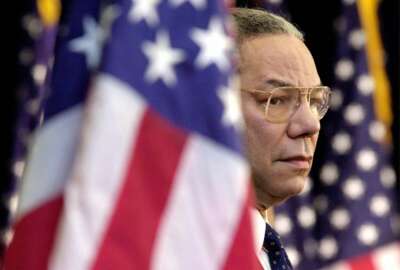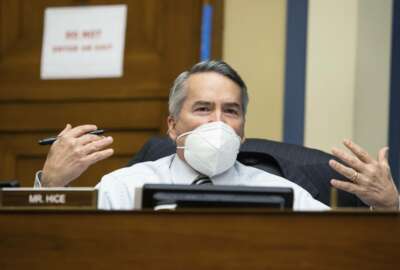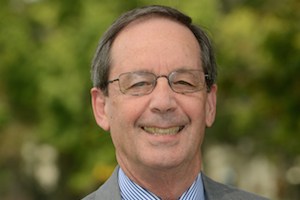
A great leader exits the scene; Metro leaves the tracks
Remembering Colin Powell, and an untimely bad break for WMATA.
Not-so-random thoughts on a Monday.
Colin Powell. A gentleman first and foremost. In my Forrest Gump-like life, I met General Powell a number of years ago, chatted with him, then introduced him to a crowd of about 1,000 people at a trade show. I don’t remember the behind-stage discussion, only that he was cordial and earnest, much more than you might have expected from a man who served both as Chairman of the Joint Chiefs of Staff and as Secretary of State.
What I do remember is the disarming anecdote he told the crowd. One time he’d met the Queen, Queen Elizabeth. She remarked that she and Powell shared a common ancestry centuries back. “I looked at her, and I looked at me,” Powell told the audience. “And I thought, somewhere along the line, something got added.” His reference to his race, and to the Queen’s graciousness, was at once telling and hilarious. The line struck the audience just right.
By all accounts, Powell in official briefings and discussions was articulate and totally prepared. David Berteau, now president of the Professional Services Council, worked with Powell when the latter was a major general and military assistant to then-Defense Secretary Caspar Weinberger. And again later when Powell was chairman. Berteau described Powell as thoughtful and thorough. He said Powell “always thought through to the end of what he was thinking — before he started talking at the beginning, which we could use more of today.”
The Powell Doctrine, as his views on how and when the United States should go to war came to be called, were respected if not always followed. A gifted man, and now a lost link to when things were at least a tad more civil and less divided. The country has changed in the 17 years since Powell retired from government service, but not for the better.
Metro rail off the rails
Saturday night I rode on Metro rail in D.C. to attend the Washington Capitals game. Passenger loads were light going in and even coming home, despite the crowded post-game platform. A day later, most of the Metro cars were ordered out of “revenue service” by Metro’s safety commission. A joker might say, “well run ’em without charging fares,” but I don’t think that’s what the commission meant.
This came in the wake of a federal investigation of a derailment on Metro, one of its newest series of train cars known as the 7000s. As transit rail cars go, these are about as deluxe as you can get, and a big improvement over the stinky carpeted cars of yesteryear. Now the old ones are the only cars Metro can use for the time being.
From the sound of the press conference given by National Transportation Safety Board Chairwoman Jennifer Homendy, those cars could be out for a while. Basically in looking at the most recent derailment, the NTSB rolled a rock away and found a swarm of problems with the cars, one of which involves the railcars’ axle-wheel assemblies. Failures of the assemblies started with two each in 2017 and 2018, and accelerated to 39 so far this year.
What a rotten break. Just as the government is within sight of having large numbers of employees return to offices downtown and dotting the Metro regional sprawl, 748 of the shiny (and easily mopped) cars go out of service.
Homendy reported that the Metro rail’s parent agency, the Washington Metropolitan Area Transit Authority (WMATA — pronounced locally as “wimada”) is aware of the problem. The wheels spread apart on the axles, causing the brakes to break up, and the cars to derail — and often plop themselves right back on the tracks. WMATA has been working with the manufacturer Kawasaki on this issue.
In this case, apparently Kawasaki doesn’t quite let the good times roll.
Whatever, in multiple 7000-series derailments and strewing of brake parts all over Metro, no one’s been injured or killed. But Homendy said the issue is potentially catastrophic. Sadly, fatal accidents are not unknown on Metro rail.
Copyright © 2024 Federal News Network. All rights reserved. This website is not intended for users located within the European Economic Area.
Tom Temin is host of the Federal Drive and has been providing insight on federal technology and management issues for more than 30 years.
Follow @tteminWFED






